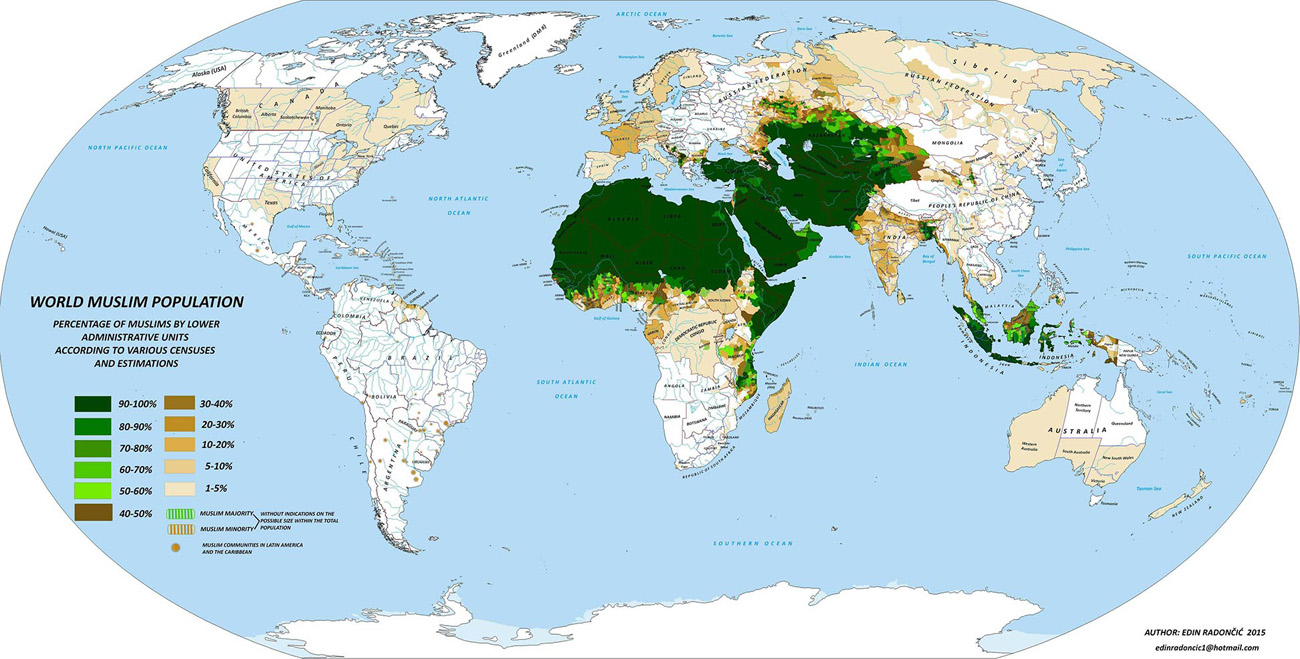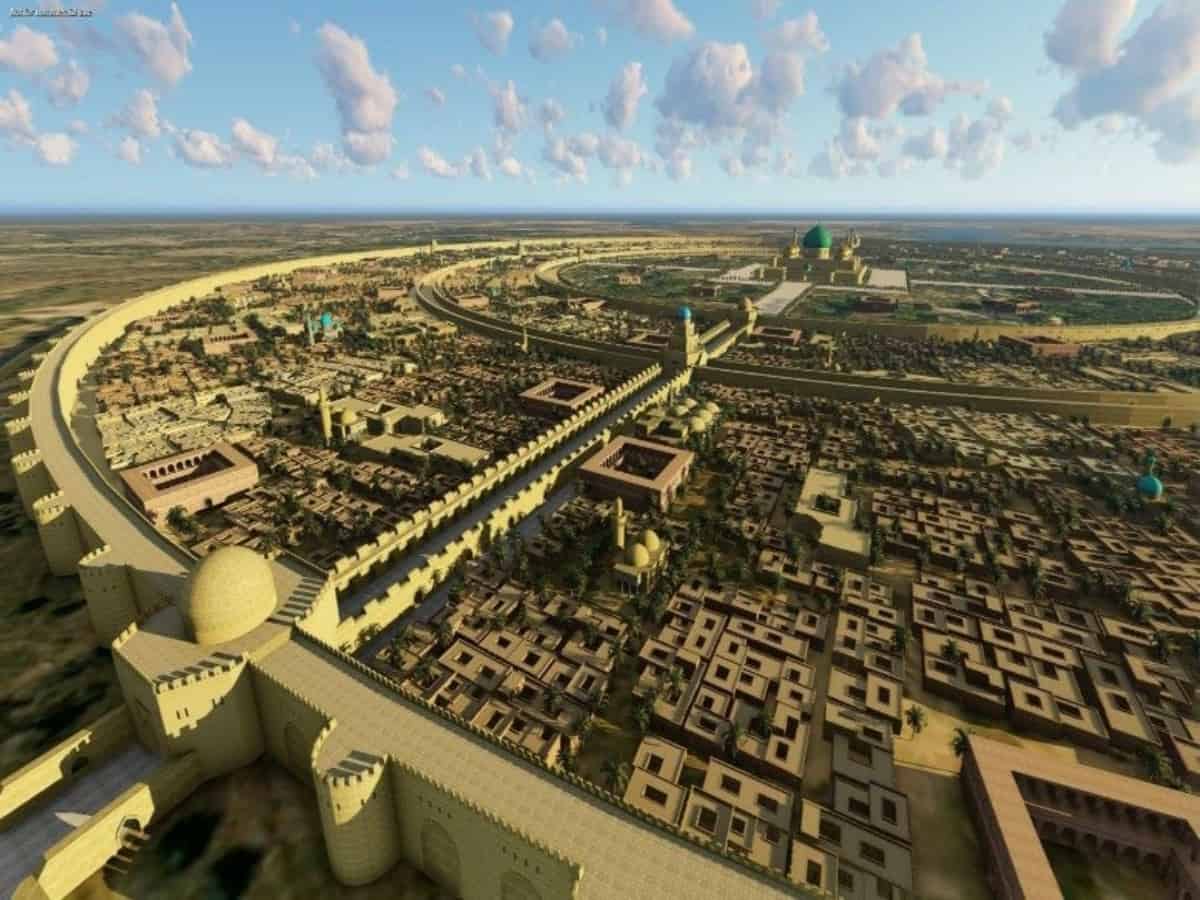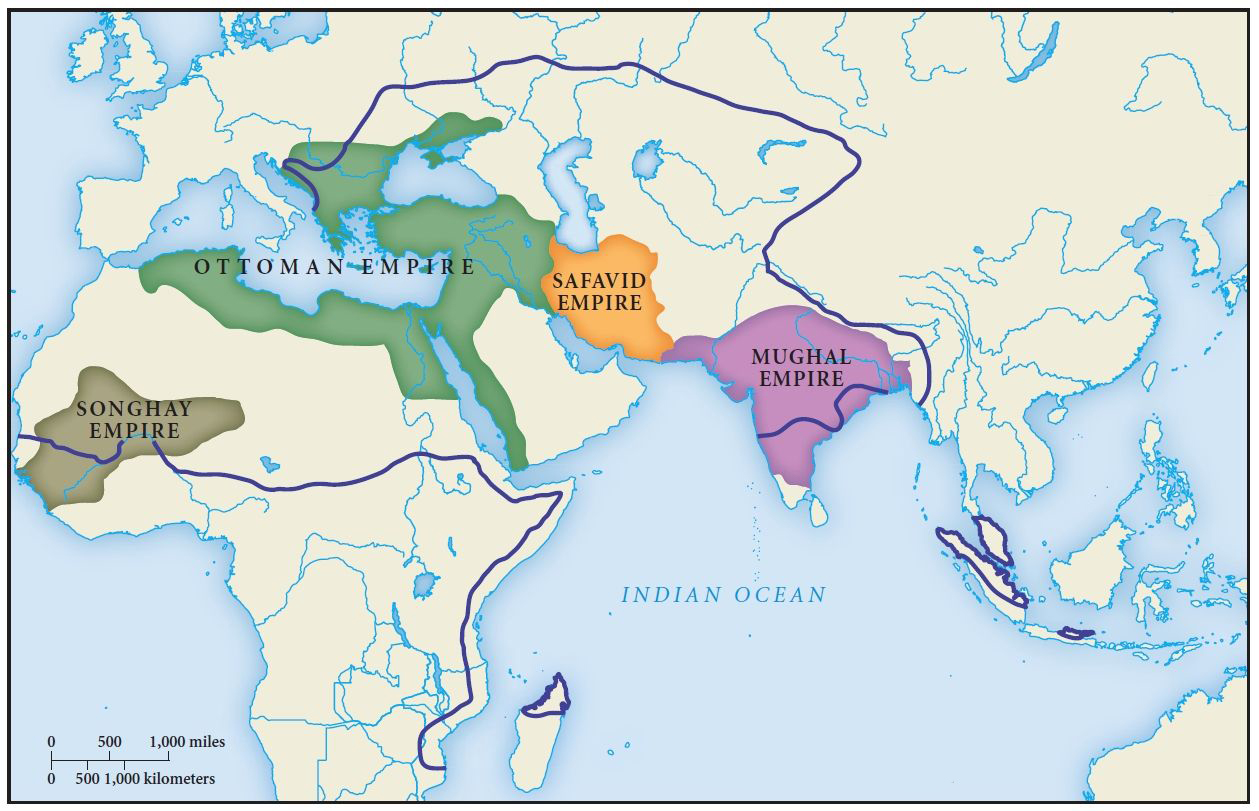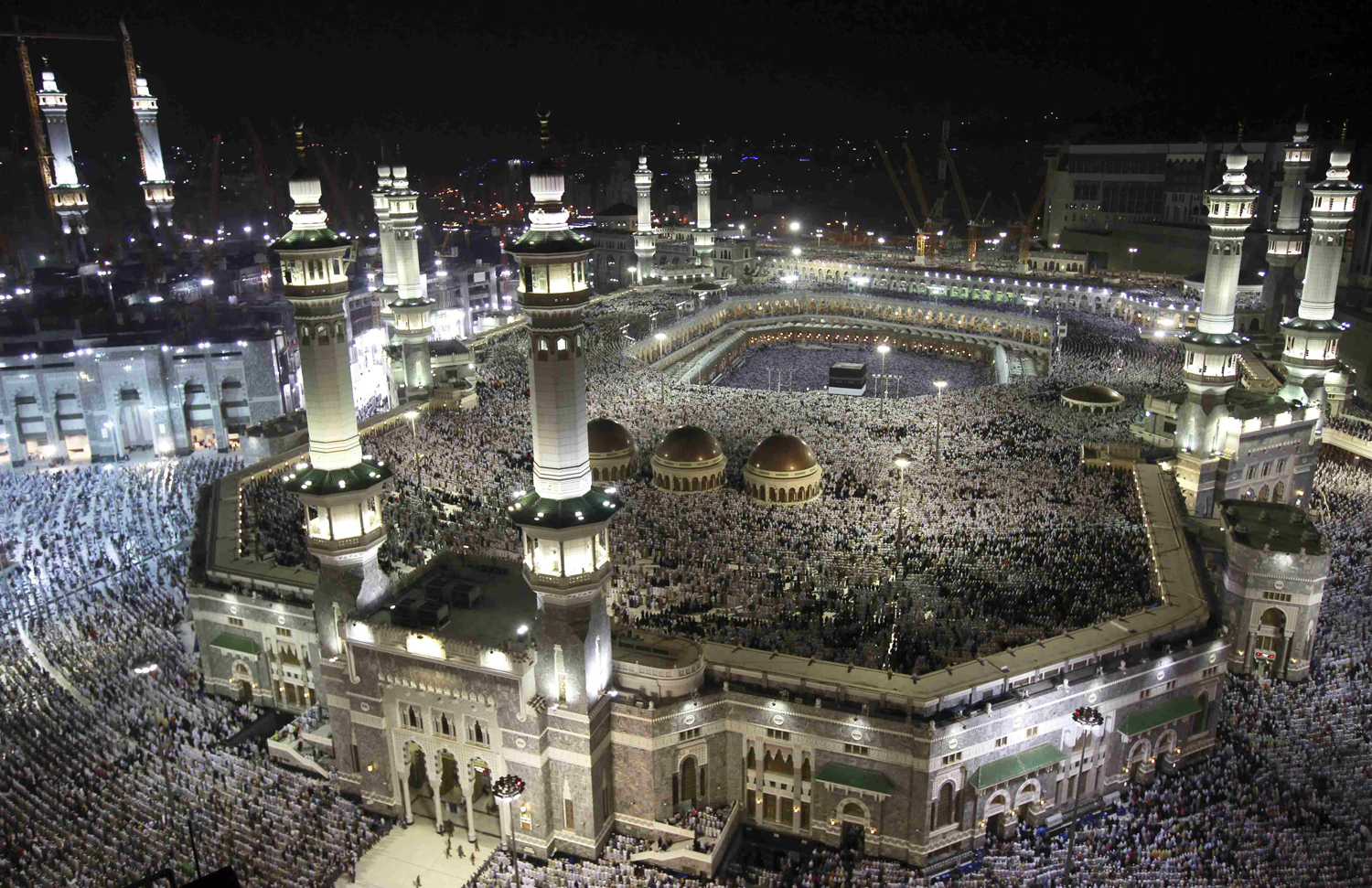ISLAM TODAY

What we are going to talk about today is the state of the Islamic World—a very big subject. We first have to ask what is Islam? It is one of the world's simplest and clearest religions. It is a recognition of one God, Allah, who is the total and complete master of reality. It is a religion that has a vision of the future, a vision of Judgment Day that goes out for millions and millions of years. It is a religion that has clear social laws that include a very clear commitment to ideas of social justice. Obviously we cannot completely sum up Islam in a short period of time and cover every issue but these are some basic points that need to be understood.
THE RELIGIOUS REVOLUTION OF ISLAM IN THE 7TH CENTURY
Mohammed is the only major figure in world religious history who we know for sure existed. The factual documentation for the existence of Jesus has been debated. But we know for sure that Mohammed existed. Also the religious political revolution of Islam in the two centuries that followed the life of Mohammed is the greatest religious political revolution in history. To understand Islam you need to understand that religious political revolution. You need to understand the world in terms of the seventh century—not the 21st-century—and in the seventh century you had a version of Christianity that was completely tyrannical and intolerant. Since Christianity came to power in the late Roman Empire, its rule was an endless series of persecutions and also an endless series of theological civil wars over self contradictions in the Bible about the trinity. When Islam came in, it was a force of civil liberties and political and intellectual liberation. Today people might have a hard time believing that, but that's what it was. The murderous and crazy persecutions of the Christians ended. Jews and Christians were allowed to practice their religion and live in peace with the sole criteria that they had to pay the Jizya tax.
ISLAM AND CHRISTIANITY
Another fact that a lot of people don't understand is that Islam defined itself as the logical continuation of Christianity. Many Americans would be astounded to know that the Qur'an speaks highly of Jesus, speaks highly of Moses but obviously denies the claim by the Christians that Jesus was God then got killed and so on and so forth. They just simply portray Jesus as a prophet and Moses was a prophet. So the evolution of people under areas of Islamic rule in the seventh and eighth centuries from Christianity to Islam was extremely understandable. The majority of the world's Christians converted to Islam. People have such a western racist view of medieval history. The center of civilization was the Mediterranean, which was in the south. Places like Paris and London—if they could even be considered towns—were basically just small towns or glorified villages. The great centers of civilization were in the East.
DURING THE DARK AGES IN WESTERN EUROPE,
CIVILIZATION CONTINUED TO FLOURISH IN THE EAST
The Muslim civilization built the enormous city of Baghdad, which was in many ways the wonder of the world. So civilization was in the East. The centers of population were in the East and the Mediterranean area. Under Islam you had the overwhelming majority of the world's Christians convert to Islam and really never look back. There is only one country which ever converted back and that was Spain, which was assisted by the Spanish Inquisition. So within 200 years of the time of Mohammed you had a religious political revolution that stretched all the way from Morocco and Spain on the Atlantic Ocean to the towering peaks of the Himalayas in India and also began to spread very quickly into central Asia such as Afghanistan, Kazakhstan, so on and so forth. Those areas today are where Islam superseded Buddhism. So this is what happened.
You cannot over emphasize the fact that Islam was a force of civilization. The concept of Allah was very compatible with concepts from Plato and Aristotle and other thoughts about a supreme God. That doesn't mean that Plato and Aristotle are Islamic. That doesn't mean that Islam is Plato and Aristotle. You have to be careful about discussing this. But there was a definite synergy, and that was a key point about what happened. Islam was a center of science and learning, indeed probably the preeminent center of science and learning outside of Tang Dynasty China. So these so-called "Dark Ages" were indeed very dark in western Europe but they were not dark in the world of Islam in terms of civilization. They were not dark in terms of the civilization of the Tang Dynasty in China, and one of the great battles of world history was the Battle of Talas in 750 AD, where the armies of the Caliph defeated the armies of the Chinese Emperor. This forever changed the religious balance of power in central Asia.
THE SPLENDOR OF MEDIEVAL BAGHDAD
ONE OF THE WONDERS OF THE WORLD

WHAT HAPPENED TO BUDDHISM IN INDIA?
A further point to think about in the evolution of world religion is whatever happened to Buddhism in India? Buddhism was born in India. Some say that Islam proved itself superior to Buddhism and that is why many of the Buddhists of India converted to Islam as they did in Central Asia, but no one knows for sure, and we won't get into which religion is better than another.
THE ISLAMIC WORLD IN 1700

WHAT WENT WRONG?
So what went wrong? The political leadership of the Muslim World is obviously not in good
shape today. We don't claim to be able to know the answer but we do want
to go over a number of trends in history and just document some things
for further thought. The purpose of this article is to encourage
other people to look into this, particularly people in the Islamic
world.
A TURNING POINT FOR THE MUSLIM WORLD AT THE END OF THE MIDDLE AGES
Islam was probably the dominant religion on the planet up until about 1500 AD or 1600 AD. Then, you had a geopolitical revolution of enormous significance, specifically the European conquest of two giant continents, the Americas. They were the so-called "New World." They were not new. They had been there all along. The Europeans conquered these enormous continents, and in the case of America and Canada, you had systematic campaigns of genocide to eliminate or drastically reduce the local populations and replace them with white Europeans coming from Europe, a process that would catch the attention of Hitler who was inspired to look to America for an example for what he planned to do in his conquest of the Soviet Union. So this was an enormous geopolitical change.However, as late as 1700, you had two enormously powerful Muslim states. You had the Ottoman Empire in the West and you had the Islamic Mughal Empire in India. The latter is probably a force of importance in history. This is simply not fully understood. Now in the 18th century, the Mughal empire in India fell apart, and that was one of the numerous disasters for Islam. In the West European imperialism took over key parts of the Ottoman Empire. Then in World War I the British imperialists smashed and destroyed the Ottoman Empire.
1918-1945
World War I was a total disaster for the Muslim World. While Ataturk saved Turkey from being destroyed by the West, the state he built was secular. The British and the French seized almost all the rest of the Ottoman state...in total violation of the promises made by the British to the Arabs in World War I. Saudi Arabia became the only independent major Muslim state. Oil had not been discovered until 1938 so it was not considered worth conquering.
In the 1930s, Muslim independence movements were very much inspired by fascism.
After World War II, their focus shifted to socialism. The greatest leader for the average Muslim person after World War II was for a while Nasser in Egypt. Nasser, unlike Ataturk, created a fusion between socialism and Islam. His feud with the Muslim Brotherhood was as much about a struggle for power as about religion. However, for most of the Arab world Nasser was seen as a vision of a new world dominated by western ideas like socialism. Indeed, the Arab world came to see a conflict between Egypt and Saudi Arabia for its soul. Ground zero for this conflict was Yemen, and Egyptian military forces were committed to a war against Saudi Arabia in Yemen.
This would help lead to one of the biggest disasters in modern Arab history, the humiliating defeat of the Arabs in the Six Day War. This would be followed by the defeat of Egypt's forces in Yemen.
The Six Day War would have huge consequences..including the killing of Robert Kennedy by an angry Arab in 1968. In the Arab world it decisively shifted the center gravity away from Egypt towards Saudi Arabia. In the next war in 1973, Saudi Arabia, not Egypt would dominate the world stage by stunning the world with its oil embargo. In 1974, OPEC would create a huge increase in oil prices and would seize western oil assets in the Middle East. This would turn Saudi Arabia into one of the greatest centers of wealth in the world.
In 1978 Egypt signed a peace treaty with Israel. While this was a good thing for the world, it basically ended Egypt's role as a leader in the Arab world, making the triumph of Saudi Arabia all the more complete.
In 1979, an event took place which would change the future of politics in the Islamic world, which was a religious revolution, a Shiite revolution organized by Ayatollah Khomeini, who overthrew and replaced the Shah of Iran.
Meanwhile Afghanistan, America, Saudi Arabia and Pakistan joined forces to mobilize an Islamic holy war against the Russian invasion. This was very popular in the Muslim world and helped to fuel ever more Islamic radicalism.
SAUDI ARABIA AND THE FUTURE ISLAM
When it comes to understanding the future of Islam, it is very important to understand the state of Saudi Arabia. Much of the religious policy in Saudi Arabia is influenced by Wahhabi Islam. And much of the Islamic World today is influenced by Wahhabi Islam.
There have been some reforms in Saudi Arabia lately. However, we believe there is no reason that Saudi Arabia cannot go further in terms of moving toward being a more open and tolerant society. We are not taking a position about its form of government or all western ideas of "human rights." However, we believe there needs to be a discussion about a willingness to allow more open debate about the future of the muslim world. It is also our opinion that there also needs to be more discussion about women's rights. Yet we also firmly believe this is something that the Muslim World needs to figure out for itself, not something for Westerners to impose and so forth.
One of the reasons why Islam spread so rapidly in the days of Classical Islam is because the Muslims tolerated a certain amount of open discussion about religion and philosophy. Whereas in the Christian West, they fell into an age of darkness because of their intolerance to new and different ideas.
The Qur'an itself promotes tolerance. "There is no compulsion in religion. Certainly, right has become clearly distinct from wrong (2:256)."
LARGEST MUSLIM COUNTRIES TODAY
So where does the Islamic world go from here? In the first place, we need to understand where the Islamic world is. To most Americans, Islam is Arabs. The truth is that Arabs are a minority of the world of global Islam. The largest Islamic populations in the world are east of the Persian Gulf. The largest Islamic populations in the world today are Indonesia first, Pakistan second, the Muslim population of India third, Bangladesh fourth and fifth Nigeria. Egypt is only the sixth largest Islamic population of the world, so the center of gravity for global Islam today is in the East.
REACTIONS TO 9/11
Now world history and the study of religion is always a dialectic between power and politics. Since the end of the Cold War, the world has been plagued by an out-of-control American imperialism, and thus the debate about Islam has been colored by that particularly because of the attack on New York and Washington by people who claimed to be Muslims on September 11th, 2001. That has led a lot of Muslims to try to create a red white and blue version of Islam and so on. There's been the emergence of so-called "Islamic moderates" and we're not against moderation, but a lot of the so-called Islamic moderates are in fact puppets of the American government and are paid for by the American government.
Evil tends to breed evil. The evil of Bin Laden has led to the evil of US imperialism in places like Iraq and Libya. This in turn has fueled more evil in the Islamic world with the rise of groups like Isis.
In 2021, a turning point took place when the American puppet government in Afghanistan collapsed and was replaced by the Taliban.
ISLAM TODAY
So the Islamic world today is kind of adrift. The Islamic world in some ways looks like Germany after the end of the 30 Years War, a collection of states, none of which really has a critical mass to be a world superpower like the Ottoman Empire, or like the Mughal Empire in India.
There are issues that need to be resolved such as the status of women in Islam. It is our opinion that women should be given greater rights in many Muslim countries and it is not at all clear to us that the repressive policies against women are endorsed by the Qur'an. That is our opinion. Some people may not like that. But that is our opinion. Once again, it is our opinion that this is something for the world of Islam to sort out, not for Westerners to command, or start shooting people up, or bombing people, killing them with sanctions, hitting people with drone attacks to supposedly improve them and so on and so forth. This is for intellectual moral and spiritual debate inside the Islamic world.
WHAT ISLAM OFFERS THE WORLD - A CLEAR AND SIMPLE VIEW OF GOD,
SOCIAL JUSTICE AND MORAL JUDGMENT
We're not going to get into statements like, "Islam is a religion of peace." We're not sure which religion is a religion of peace. War is legitimate in Islam, there is no question about it. The details are subject to debate but most religions condemn pacificism and endorse the concept of just wars. If you study the Crusades, the overwhelming majority of war crimes were committed by Christian forces, such as the mass murder of the Jews in Jerusalem by the Crusaders.
In terms of global religions, there are positive aspects of Islam in terms of its clear theology of monotheism, it's clear vision of social justice, it's clear vision of a judgment day to come. So these are our thoughts and hopefully they'll help some people out there particularly in the Muslim world itself to explore where they want to go.
THE IMPORTANCE OF PAKISTAN
A key place to watch is Pakistan, where we have a very creative leader Imran Khan. You have women's rights activists debating the role of women in Islam and you also have very conservative people, and in many cases, very dangerous lunatics, violent lunatics but it's an interesting nexus as to where the future of Islam might be decided. We're not saying it will definitively be decided in Pakistan, but that is an interesting point to consider, so hopefully this article has helped the world's Muslims and creative people define their future as the 21st century unfolds. Pakistan has a large and growing nuclear arsenal, further adding to its global importance.
THE FUTURE OF ISLAM
The future of Islam can only be decided by Muslims themselves, including issues such as women's rights and extremism.
What Muslims do not need is more western interference by atheist and Christian "foreign policy experts" who are planning to "save" Islam or "protect human rights." America's wars in Iraq, Libya and Syria have been a far more deadly form of terrorism than the actions of the criminals of 9/11. Ironically, modern western Christian "foreign policy experts" have done more to destroy what's left of Christianity in the Middle East than any other force in the last 1000 years. We might also remember that the American nuclear bombing of Nagasaki wiped out the center of Christianity in Japan...Perhaps one of many reasons why Christianity has gone nowhere in postwar Japan. American "foreign policy experts" would do well to spend more time dealing with the sorry state of their own nation...keep their own house in order rather than imposing their will on the rest of the world. The recent Democracy Summit also did not inspire too much confidence.
It is a serious problem that freedom of speech is not allowed in all too many Muslim nations. However, prophetic voices in history have faced greater threats, and the internet enables a global reach for spiritual leaders.
The boom in atheistic influenced political states after World War I has almost totally collapsed. Many official religions are also not doing well and religious vacuums have emerged.
Responsible leadership in world religions is a necessity.
MECCA TODAY

Related Articles